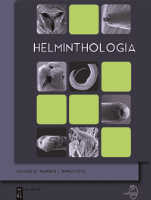
HELMINTHOLOGIA
Scope & Guideline
Innovating Insights into Helminth Impact on Animal Life
Introduction
Aims and Scopes
- Morphological and molecular characterization of helminths:
Research often involves detailed morphological examinations combined with molecular techniques to identify and classify helminth species, enhancing the understanding of their diversity and taxonomy. - Ecological and epidemiological studies:
The journal emphasizes studies that investigate the ecological relationships between helminths and their hosts, including transmission dynamics, prevalence, and risk factors associated with infections. - Zoonotic potential of helminth parasites:
A significant focus is placed on the zoonotic implications of helminth infections, exploring how these parasites can affect human health and the transmission pathways from animals to humans. - Development of diagnostic and treatment methods:
HELMINTHOLOGIA also highlights research on new diagnostic techniques and treatments for helminth infections, including the efficacy of traditional and novel anthelmintic agents. - Environmental impacts on helminth populations:
Studies assessing how environmental changes, such as land use and climate change, affect helminth populations and their interactions within ecosystems are prominently featured.
Trending and Emerging
- Molecular diagnostics and genetic characterization:
There is a growing emphasis on molecular techniques for the diagnosis and genetic characterization of helminths, allowing for more precise identification and understanding of their biology. - Anthelmintic resistance studies:
Research focusing on the resistance of helminths to anthelmintic drugs is increasingly prevalent, highlighting the urgent need for new strategies in managing helminth infections in both humans and animals. - Impact of climate change on helminth dynamics:
Studies examining how climate change affects the distribution and life cycles of helminths are emerging, reflecting an increased awareness of environmental impacts on parasitology. - Zoonotic disease transmission pathways:
Research exploring the pathways through which zoonotic helminths are transmitted from animals to humans is gaining traction, emphasizing public health implications and the need for surveillance. - Innovative treatment approaches:
There is a trend towards investigating new treatment options, including natural products and novel compounds, for their efficacy against various helminth infections.
Declining or Waning
- General reviews on helminth pathogens:
There has been a noticeable decrease in the publication of broad review articles summarizing helminth pathogens, as researchers increasingly focus on specific case studies and novel findings. - Studies on traditional helminthic treatments:
Research involving traditional remedies or historical treatment methods for helminth infections appears to be waning, as the field shifts towards more modern, evidence-based approaches. - Non-parasitic interactions in ecology:
There seems to be a decline in the exploration of non-parasitic ecological interactions involving helminths, as the focus narrows to more direct impacts of these parasites on host organisms. - Studies on less common helminth species:
Research on less common or obscure helminth species has become less frequent, possibly due to a shift towards studying more impactful or well-known species with significant public health implications.
Similar Journals

RAFFLES BULLETIN OF ZOOLOGY
Unveiling the Wonders of Wildlife ResearchRaffles Bulletin of Zoology, published by the National University of Singapore's Lee Kong Chian Natural History Museum, serves as a prestigious platform for the dissemination of cutting-edge research in Animal Science and Zoology, as well as Ecology, Evolution, Behavior and Systematics. With a current impact factor reflective of its Q2 category in both fields, this journal not only enhances its visibility in the academic community but also provides valuable insights into the complexities of biodiversity and conservation efforts. Covering a wide array of topics, Raffles Bulletin facilitates interdisciplinary collaboration and serves as an essential resource for researchers, professionals, and students alike. It is indexed in Scopus, ranking #233 out of 490 in Animal Science and Zoology and #406 out of 721 in Ecology, ensuring that the research published contributes significantly to the global discourse on wildlife and ecosystem management. Since its inception in 1996, this journal has bridged gaps in knowledge and continues to foster a deeper understanding of the living world.

BELGIAN JOURNAL OF ZOOLOGY
Shaping Understanding Through Rigorous Zoological Studies.The BELGIAN JOURNAL OF ZOOLOGY, published by the Royal Belgian Zoological Society, serves as a prominent platform for advancing research in the field of zoology. With an impact factor reflecting its status within the academic community, this journal rigorously publishes innovative studies and reviews, covering a broad spectrum of topics related to animal science and zoology. As an esteemed outlet, the journal ranks in the Q2 category for both Animal Science and Zoology, demonstrating its relevance and contribution to the field, as indicated by its Scopus ranking of 255 out of 490. Although it operates under a subscription model, the journal is committed to disseminating high-quality research that can shape contemporary understanding of animal biology and ecology. With a publication history dating back to 1990 and extending through 2024, researchers, professionals, and students are encouraged to engage with its rich content, which is vital for ongoing discourse and discovery within zoological sciences.
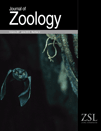
JOURNAL OF ZOOLOGY
Bridging foundational research with innovative zoological studies.JOURNAL OF ZOOLOGY, published by Wiley, stands as a premier scholarly journal in the fields of Animal Science and Zoology, renowned for its outstanding contributions to the knowledge of animal biology and ecology. With an impressive impact factor and a strong ranking in the Q1 category for Animal Science and Zoology, as well as Q2 for Ecology, Evolution, Behavior, and Systematics, the journal rigorously engages with both foundational research and groundbreaking discoveries since its inception in 1830. Located in Hoboken, New Jersey, this journal is dedicated to fostering the academic community's understanding of zoological sciences, providing access to important research that shapes wildlife conservation efforts and ecological studies. Although the journal does not currently offer open access options, it continues to attract significant attention, as evidenced by its strong Scopus rankings in related categories. Researchers, professionals, and students will find invaluable resources in the JOURNAL OF ZOOLOGY to advance their understanding of animal life and the ecological challenges it faces today.

Parasite
Empowering global collaboration in the fight against parasitic diseases.Parasite is a distinguished open-access journal published by EDP Sciences S A based in France, specializing in the multifaceted field of parasitology and related disciplines. Since its inception in 1994, it has played a pivotal role in advancing research in Agricultural and Biological Sciences, Animal Science and Zoology, Infectious Diseases, Insect Science, and Veterinary Sciences, earning a prominent place in the academic community with its 2023 rankings placing it in the Q1 category for several key areas. With an impact factor reflective of its quality and engagement, the journal fosters a collaborative environment for researchers, professionals, and students to disseminate and access high-quality studies and reviews. Operating under an open-access policy since 2013, Parasite ensures that cutting-edge research is accessible to a global audience, thereby promoting knowledge sharing and innovation in the field. For more information, please visit the journal's homepage and explore its extensive repository of articles that contribute to the understanding of parasitic interactions and their implications in health and agriculture.

SPIXIANA
Championing Rigorous Research in ZoologySPIXIANA is a distinguished journal dedicated to the fields of animal science and zoology, published by VERLAG DR FRIEDRICH PFEIL in Germany. With the ISSN 0341-8391, it has been contributing to the scientific community since its inception, with volumes converging from 2008 to 2024. Although currently listed in the Q4 quartile of the 2023 category rankings for Animal Science and Zoology, it provides a vital platform for researchers and professionals to disseminate significant findings in the field. Despite being unindexed in open access, SPIXIANA ensures that vital research reaches its audience, enhancing academic discourse and furthering our understanding of zoological sciences. Its commitment to sharing rigorous scientific research make it an important resource for anyone passionate about animal biology and conservation.
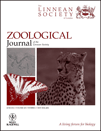
ZOOLOGICAL JOURNAL OF THE LINNEAN SOCIETY
Advancing the frontiers of zoological research.Zoological Journal of the Linnean Society, published by Oxford University Press, stands as a prestigious vessel for scholarly discourse in the fields of Animal Science and Ecology. With an ISSN of 0024-4082 and E-ISSN 1096-3642, this journal has an illustrious history dating back to its inception in 1866, and has consistently contributed groundbreaking research that shapes our understanding of zoology and evolutionary biology. Operating out of the United Kingdom, the journal boasts an impressive Q1 ranking in both Animal Science and Zoology and Ecology, Evolution, Behavior and Systematics, positioning it among the top tier of its category. With a significant presence in the academic landscape, the journal ranks 24th among 490 in Animal Science and 97th among 721 in Ecology, reflecting its impact and relevance in the field. Although it is not an open access journal, the wealth of knowledge it offers is invaluable for researchers, professionals, and students alike, aiding in the advancement of zoological sciences.
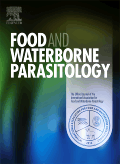
Food and Waterborne Parasitology
Bridging Knowledge and Practice for Safer Food and WaterFood and Waterborne Parasitology is a premier open-access journal published by ELSEVIER, dedicated to the critical study of parasites affecting food and water safety. Since its inception in 2015, the journal has significantly contributed to research in the fields of epidemiology, food science, and parasitology, achieving impressive rankings in its categories with a Q1 status in Food Science and a Q2 in both Epidemiology and Parasitology as of 2023. Addressed from RADARWEG 29, 1043 NX Amsterdam, Netherlands, it garners attention for its accessible content, aiming to elevate the understanding of the impact of parasitic organisms on public health and food security. With its open-access model, the journal enhances visibility and dissemination of research findings, fostering collaboration and innovation among researchers, professionals, and students alike. By bridging scientific inquiry with practical applications, Food and Waterborne Parasitology plays a pivotal role in addressing global health challenges and advancing knowledge in this vital area of study.

CANADIAN JOURNAL OF ZOOLOGY
Exploring the Wonders of Zoology and BeyondWelcome to the Canadian Journal of Zoology, a leading academic journal in the fields of Animal Science and Zoology as well as Ecology, Evolution, Behavior and Systematics. Published by Canadian Science Publishing since 1965, this esteemed journal serves as a vital platform for researchers, professionals, and students to disseminate and engage with significant findings in zoological and ecological research. With an impact factor placing it in the Q2 category and rankings reflecting its influence (201/490 in Animal Science and Zoology; 372/721 in Ecology), the journal is committed to advancing the understanding of animal biology and environmental interactions. Although currently not an open access publication, it provides comprehensive resources and studies that are crucial for the academic community. Based in Ottawa, Canada, the journal continues to push the boundary of knowledge right up to 2024 and beyond, making it an essential resource for anyone dedicated to the life sciences.
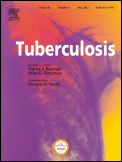
Tuberculosis
Fostering collaboration in the realm of immunology and microbiology.Tuberculosis is an esteemed peer-reviewed journal specializing in the fields of Infectious Diseases, Immunology, and Microbiology, published by Churchill Livingstone since 1974. With a scope aimed at advancing the understanding and management of tuberculosis and related infectious diseases, the journal provides a platform for innovative research findings, clinical practices, and policy discussions. It is ranked in the Q2 category for both Infectious Diseases and Microbiology (medical), reflecting its significance in the academic community and the impact of its published work. The journal's commitment to openness is evident in its access options, fostering wider dissemination of knowledge. With an impact factor that underscores its relevance, Tuberculosis serves as a crucial resource for researchers, healthcare professionals, and students dedicated to combatting these pressing health challenges. The journal operates from its production headquarters in Edinburgh, Scotland, ensuring a strong connection to the international research community.

GAYANA
Championing open communication for a thriving academic community.GAYANA is a pioneering journal in the fields of Animal Science and Zoology and Aquatic Science, published by EDICIONES UNIV, CONCEPCION in Chile. With an ISSN of 0717-652X and an E-ISSN of 0717-6538, this journal has been at the forefront of research dissemination since its inception in 2006. Recognized in 2023 with a Q4 quartile ranking in both its categories, GAYANA provides a platform for researchers and practitioners alike to explore and publish their findings. Despite its relatively new establishment, the journal has carved a niche in aquatic and animal research, as evidenced by its Scopus ranks in the 12th and 7th percentiles, respectively. With challenges in access options, GAYANA emphasizes the significance of open scholarly communication, fostering an academic environment where knowledge is shared and advanced. Contributing to GAYANA means being part of a growing community dedicated to understanding and conserving our natural world.